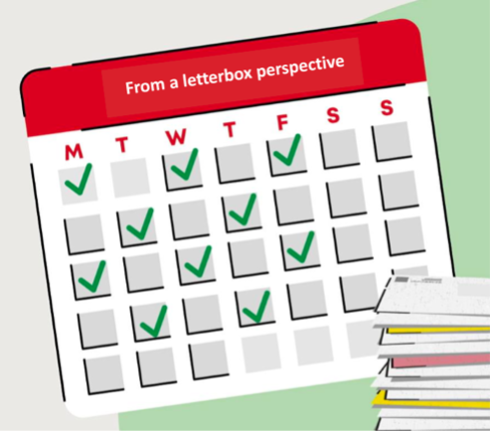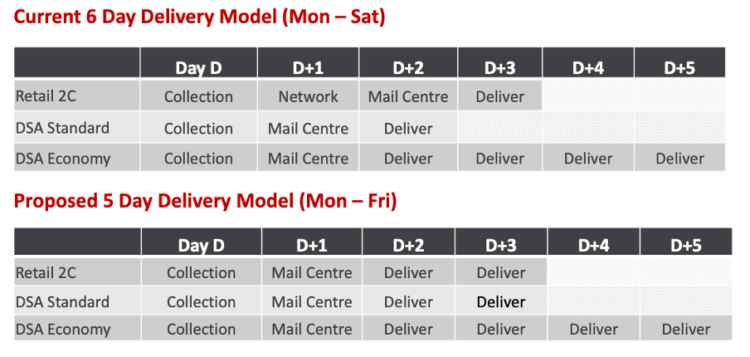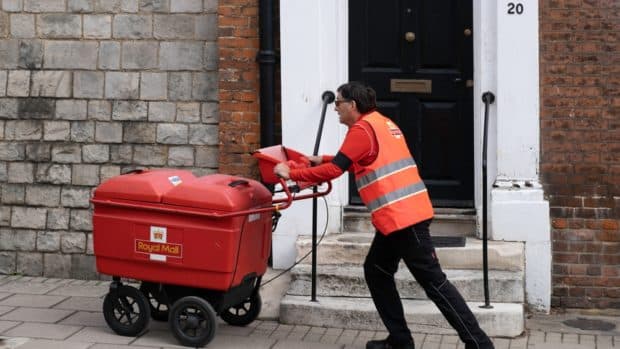
In a specialised briefing on July 30th 2024, members of the DCA were given an insight into Royal Mails’ proposed future plans for the reforms to the Universal Service Obligation. The briefing from Tim Cable, Wholesale Product Director at Royal Mail, outlined the plans that will, in effect, reduce the level of service for the delivery of your mailings.
In the briefing, Royal Mail pointed out that the current universal service of one price going anywhere in the UK and the delivery of letters for six days of the week are no longer sustainable in their current format. Royal Mail has sustained losses of £784m for the last two financial years (22/23 £438m and 23/24 £336m).
One of the main reasons for this loss is the falling letter volumes, with a reduction in letters from 20 billion in 04/05 to 7 billion in 22/23. This, coupled with an increase in the number of households in the same period from 27 million to 32 million, now means that the average household gets 4 letters per week compared to 14 in 04/05.
Royal Mail’s proposal is that the service for 1st class mail will stay the same and will be delivered 6 days a week, exactly as it is currently, and that parcels will currently stay at 7 days a week. The change will be for all non-first-class letters which will be delivered “every other” weekday. The concept is that households or areas will be split A & B and non-first- class mail will be “held back” meaning that Royal Mail will deliver more items per delivery when they service each household.

What this means to the majority of our DCA members is that a standard downstream access (DSA) mailing will fall in line with Royal Mail Second Class and arrive in 3 weekdays instead of 2.
The major change for non-first- class mail is that the delivery model is changing from the current 6 day delivery model to a 5 day model (Monday – Friday). This will mean that members who currently structure their mailing plans so that mail starts to drop through doors on Saturdays, will no longer be able to unless they use the much more expensive option of 1st class.
In effect the delivery service for standard DSA mailings will take one day longer as they extend to match second class.
Economy mailings will also take one day longer to drop as Saturday will no longer be classed as a delivery day for this service level as outlined below.

How this would work in real terms for members’ mailing projects is outlined in the example below for an Economy mailing:
|
Current Service |
Proposed new Service |
|||
| Monday | Day D | DSA Collects mailing | Day D | DSA Collects mailing |
| Tuesday | D+1 | DSA Hands over to RM | D+1 | DSA Hands over to RM |
| Wednesday | D+2 | RM Commences delivery | D+2 | RM Delivers to “A” Households |
| Thursday | D+3 | RM Delivery | D+3 | RM Delivers to “B” Households |
| Friday | D+4 | RM Delivery | D+4 | RM Delivers to “A” Households |
| Saturday | D+5 | RM Delivery | No Delivery | |
| Sunday | No Delivery | |||
| Monday | D+5 | RM Delivers to “B” Households | ||
Greater Reliability
The proposal from Royal Mail is that the reduction of service levels will enable it to increase the reliability of delivery and is proposing new reliability targets for both first class and second class to the following levels:
Retail First Class 90% by D+1 96% by D+2
Retail Second Class 95% by D+3 99% by D+5
“A” & “B” Household splits
The splitting of households to an A & B level, meaning that in week 1 households “A” will get their mail on Monday, Wednesday and Friday and then in week 2 they will get it Tuesday and Thursday has not been completely defined by Royal Mail at this stage. It will be defined at a later stage and will be on a region by region basis depending upon the density of properties in an area.
Royal Mail is asking its customers and the wider mailing industry for some feedback as to what insights are required and what kind of tools would be considered useful to help with the tracking and control of mail through the network.
If you are interested in participating in this feedback, please let us know at DCA, and we can put your name forward.
Timings
The timing of these changes has not been confirmed at this stage as this is very much an early briefing and indication of plans well in advance of change. In reality, due to the regulatory changes that are required, this is not likely to be implemented before July 2025 and would also take a rollout period of around 18-24 months to be fully adopted.
In summary, there is not a dramatic reduction in overall service levels with an additional day for your mailing to drop, but with an increased reliability of service.
How do you think this will this affect your mailings?
Will the A & B household splits affect the way you mail?
More importantly, what information do you need to track your mail through the network?
Is the removal of Saturday deliveries going to affect you the most?
by John Ellis, DCA Postage & Mailing Expert








Share